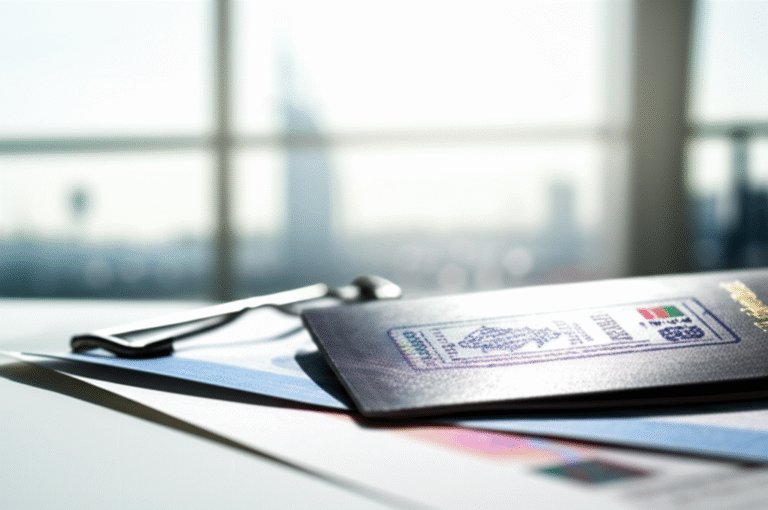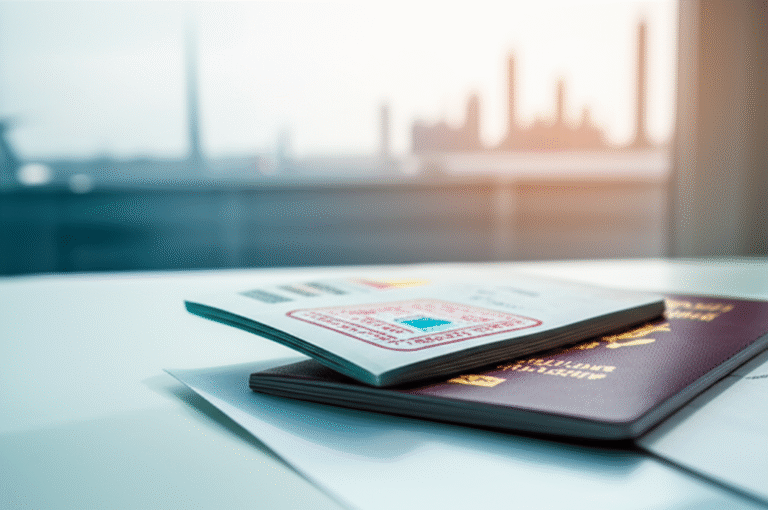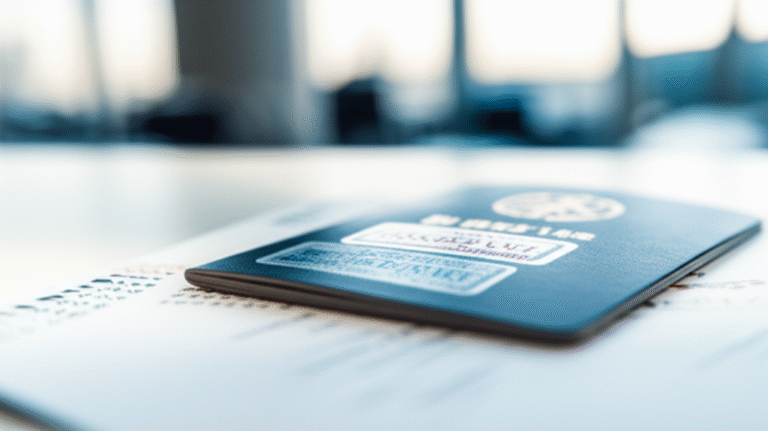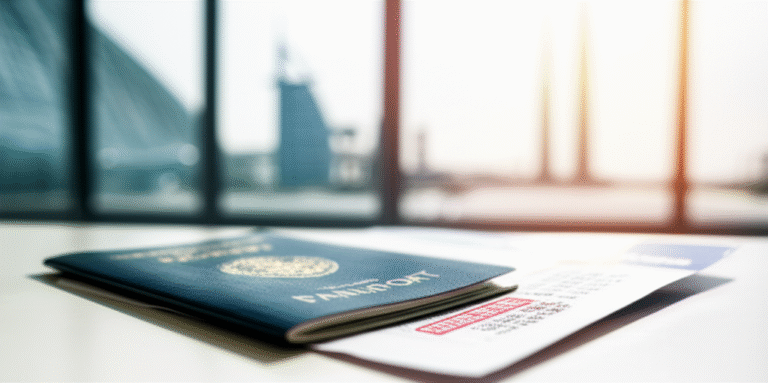How to Verify Contract in Polo Dubai
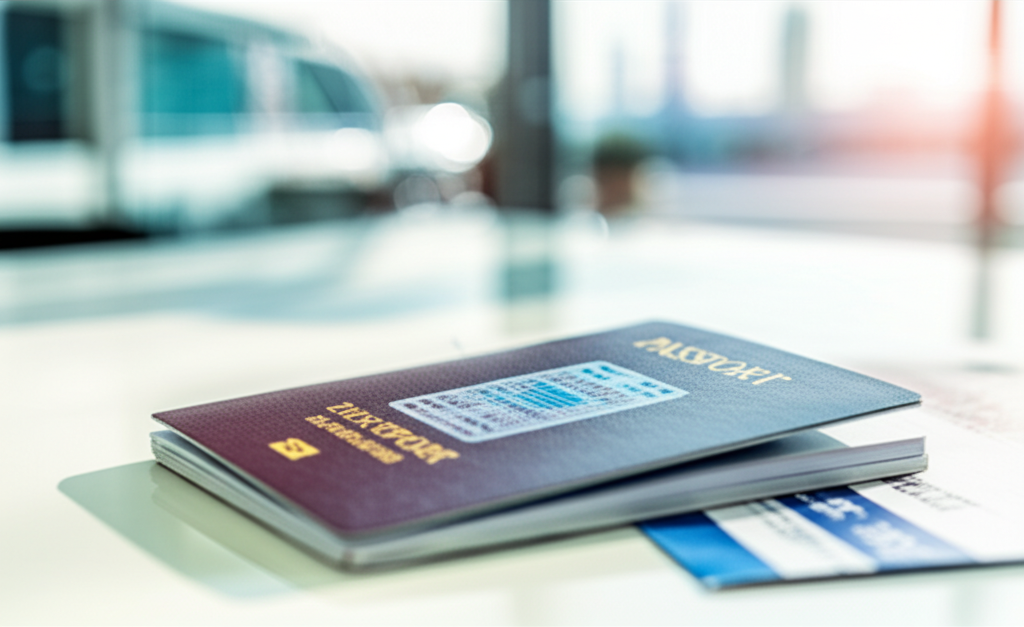
To verify a contract in Polo Dubai, individuals typically interact with specific government entities and digital platforms, ensuring the contract’s legal validity and adherence to UAE laws. This process guarantees your agreement is official and enforceable within Dubai.
Key Takeaways
Securely verify your contract’s authenticity.
Understand the role of government bodies.
Leverage official online portals.
Ensure legal compliance for your agreement.
Protect your rights and obligations.
Navigate the verification process smoothly.
Navigating the legal landscape of Dubai can seem complex, especially when it comes to official documents like contracts. You might be signing a rental agreement, an employment contract, or a business deal in this vibrant city. Understanding how to verify a contract in Polo Dubai is crucial to ensure it is legally sound and protects your interests. This guide will walk you through the straightforward steps, demystifying the process and empowering you with knowledge. Let’s explore how to confirm your contract’s legitimacy, ensuring peace of mind in your transactions.
Understanding Contract Verification in Dubai
In Dubai, like in many global hubs, a verified contract signifies that an agreement has met all legal requirements and is officially recognized by the relevant authorities. This verification process is a cornerstone of Dubai’s commitment to transparency, order, and the protection of all parties involved in any transaction. Whether you are an expatriate settling into a new home, a business owner establishing operations, or an employee joining a company, ensuring your contract is properly verified is paramount. It prevents future disputes and solidifies your rights and responsibilities.
The concept of contract verification in Dubai is rooted in the emirate’s robust legal framework, which is designed to foster trust and security for residents and investors alike. Dubai Police play a vital role in maintaining public safety and order, and by extension, supporting the integrity of legal agreements through various government collaborations. While specific verification steps might differ slightly based on the contract’s nature (e.g., employment vs. real estate), the underlying principle remains the same: official validation.
Why is Contract Verification Essential?
Verifying a contract is not just a formality; it’s a critical step that safeguards your legal standing. In Dubai, a city that prides itself on innovation and a forward-thinking approach to governance, legal certainty is a priority. Here’s why it’s so important:
Legal Enforceability: A verified contract ensures that your agreement is recognized by the UAE courts. Should any disputes arise, a verified document provides a strong basis for legal recourse.
Protection Against Fraud: Verification processes help weed out fraudulent or misrepresented agreements, protecting you from scams or unfair terms.
Clarity of Terms: While verification doesn’t guarantee the fairness of terms (that requires careful review), it confirms the document’s authenticity and adherence to general legal standards.
Smooth Transactions: For many official processes, such as obtaining visas, residency permits, or business licenses, a verified contract is a mandatory requirement.
Peace of Mind: Knowing your contract is legitimate allows you to proceed with confidence, whether it’s about your employment, your home, or your business.
This dedication to legal clarity aligns with Dubai’s global reputation as a safe and secure place to live, work, and invest.
Types of Contracts Requiring Verification in Dubai
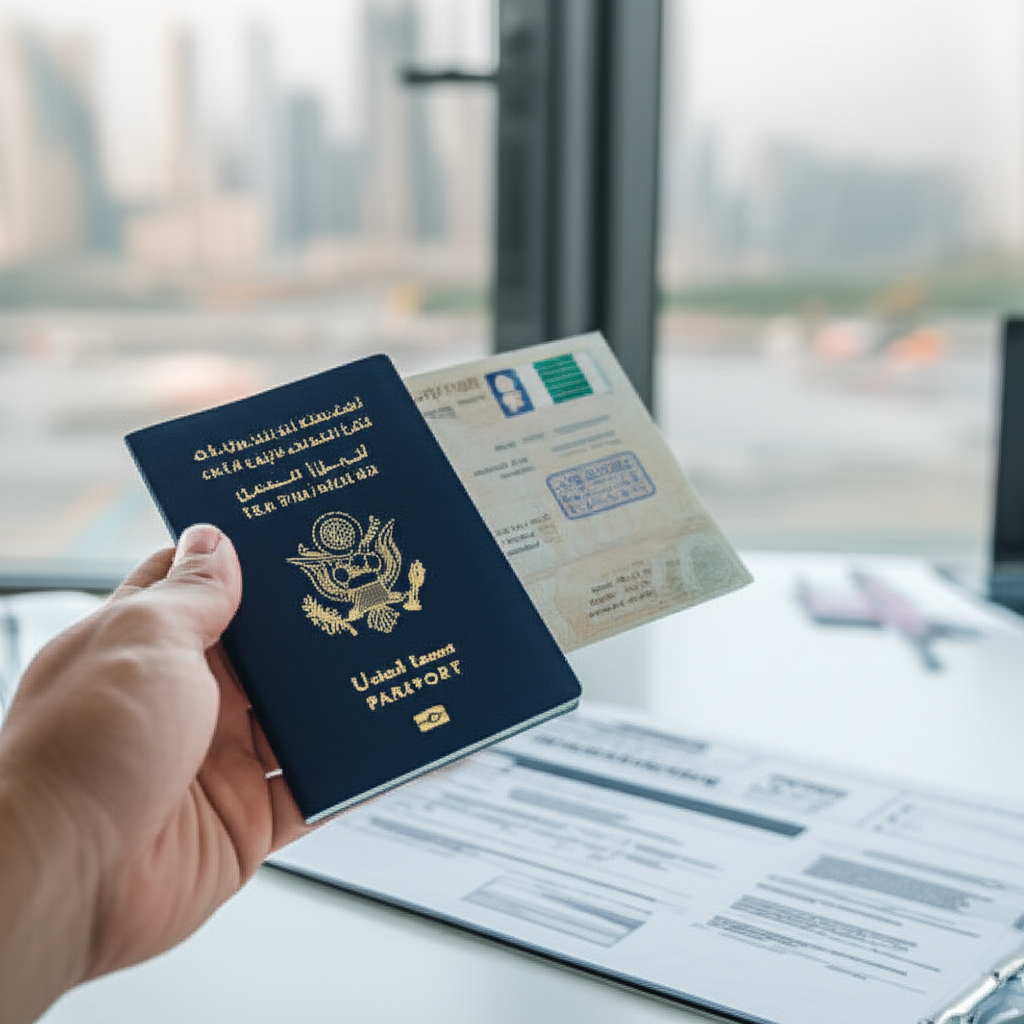
Dubai hosts a diverse population and vibrant economy, leading to various types of contracts that residents and businesses commonly encounter. Each may have specific verification nuances, though the core principles of legality and official recognition often overlap. Understanding the type of contract you have is the first step in knowing where and how to verify it.
1. Employment Contracts
For expatriates and locals alike, employment contracts are fundamental. These documents outline the terms of employment, including salary, working hours, leave entitlements, and termination conditions. In Dubai, employment contracts are typically Ministry of Human Resources and Emiratisation (MOHRE) compliant.
Key Verification Aspect: Ensuring the contract presented to you is the one officially registered with MOHRE. This is particularly important for visa processing and labor rights.
How it’s Verified: Often, the employment visa application or labor card process implicitly verifies the contract. Employees can also check their contract details through the MOHRE official portal.
2. Real Estate Tenancy Contracts
Renting or buying property in Dubai involves legally binding contracts. Tenancy contracts, in particular, need to be registered to ensure their validity and to access services like DEWA (Dubai Electricity and Water Authority).
Key Verification Aspect: Registration with the Real Estate Regulatory Agency (RERA) through the Ejari system is the primary verification step.
How it’s Verified: The Ejari system provides a unique registration number for each tenancy contract, making it officially recognized and verifiable. Landlords are legally obligated to register the contract.
3. Business and Commercial Agreements
Companies operating in Dubai, whether onshore or in free zones, engage in numerous business contracts, partnerships, and service agreements.
Key Verification Aspect: The validity of these contracts often relies on the legal standing of the companies involved and adherence to the Dubai Courts or relevant free zone jurisdiction laws. For certain agreements, notarization might be required.
How it’s Verified: This can involve verifying the trade license of the companies, ensuring compliance with specific free zone regulations, and potentially through legal counsel or notarization services at the Dubai Courts.
4. Other Agreements
This can include agreements for services, loans, sponsorships, and more.
Key Verification Aspect: Ensuring the contract adheres to UAE federal and Dubai local laws, and that parties are legally competent to enter such agreements.
How it’s Verified: This might involve legal consultation, notarization, or specific government department approvals depending on the contract’s nature and involved parties (e.g., Dubai Land Department for property-related transactions).
How to Verify Contract in Polo Dubai: A Step-by-Step Guide
While “Polo Dubai” might refer to a specific development or area, the process of verifying any contract within the emirate follows established government procedures. The key is to identify the relevant authority based on the contract type. Here’s a general approach to verifying your contract in Dubai.
Step 1: Identify the Type of Contract and Relevant Authority
The first and most crucial step is to determine what kind of contract you have. This will direct you to the correct government body or online portal for verification.
Employment Contract: Ministry of Human Resources and Emiratisation (MOHRE).
Tenancy Contract (Renting): Real Estate Regulatory Agency (RERA) via the Ejari system.
Property Purchase Contract: Dubai Land Department (DLD).
Business/Commercial Contract: Department of Economic Development (DED) for onshore companies, or the relevant Free Zone Authority. Dubai Courts for notarization/legal verification of specific clauses.
Other Specialized Contracts: May involve specific licensing bodies or government departments (e.g., Department of Health for medical contracts).
Step 2: Gather Necessary Information and Documents
To initiate the verification process, you will need specific details related to your contract and the parties involved.
For Employment Contracts: Your passport copy, visa details, and a copy of the contract itself.
For Tenancy Contracts: The landlord’s details, property address, tenant’s passport copy, and the contract’s details.
For Business Contracts: Trade license of the company, passport copies of authorized signatories, and the contract document.
Step 3: Utilize Official Government Portals and Platforms
Dubai has made significant strides in digitizing its services. Many verification processes can be initiated or completed online, reflecting the city’s smart governance initiatives.
MOHRE Portal: For employment contracts, you can often access services and information through the official MOHRE website or app to check labor contract registration.
Ejari Online Portal: For tenancy contracts, the Ejari system is the official platform for registration and verification. You can access your registered contract details here.
DLD Smart App/Website: For property transactions, the Dubai Land Department offers digital services for verifying property ownership and dealings.
Dubai Now App: This integrated government services app can provide access to various verification and information services across different departments, simplifying the user experience.
Step 4: Physical Office Visits (If Necessary)
While online services are prevalent, some complex or initial verification steps might require a visit to a government customer happiness center.
Customer Happiness Centers: These centers, often associated with entities like DED or MOHRE, offer in-person assistance and can guide you through specific verification procedures that cannot be completed online.
Legal Consultations: For significant commercial or complex personal contracts, consulting with a legal professional in Dubai is highly recommended. They can advise on verification, legal implications, and potential issues.
Step 5: Confirmation and Record Keeping
Once verified, ensure you receive official confirmation. This could be a digitally signed document, a registration number, or an updated status on a government portal. Always keep secure copies of all verified contracts and related documentation.
Verifying Employment Contracts: A Deeper Dive
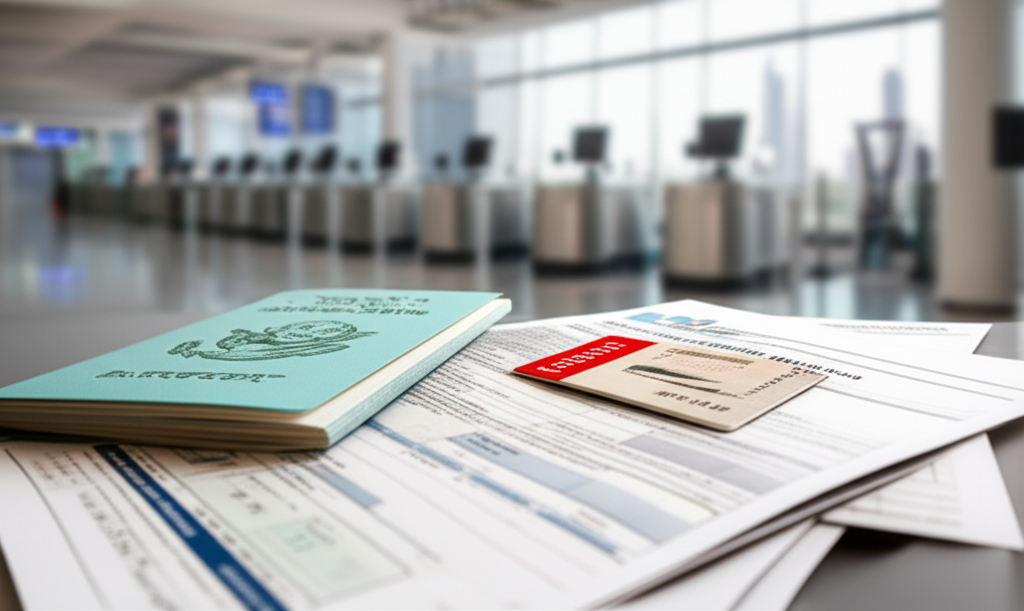
Employment contracts are a cornerstone of life for many in Dubai. Ensuring yours is correctly verified protects your rights and ensures a smooth transition into your new role. The Ministry of Human Resources and Emiratisation (MOHRE) oversees these processes to maintain fair labor practices.
The Role of MOHRE
The Ministry of Human Resources and Emiratisation (MOHRE) is the primary body responsible for regulating employment relations in the UAE. For any employment contract to be legally valid, it must generally comply with MOHRE regulations.
Key Functions of MOHRE in Verification:
Contract Registration: Employers are required to register all employment contracts with MOHRE. This ensures that the contract terms align with UAE labor law.
Labor Card Issuance: In the past, a labor card was a key physical document. While its form has evolved, the underlying principle of official labor registration signifying contract validity remains.
Dispute Resolution: MOHRE provides mechanisms for resolving labor disputes, which heavily rely on the existence and terms of a registered contract.
How to Verify Your Employment Contract Online
Dubai’s digital transformation means many employment contract verifications can be done with a few clicks.
1. Access the MOHRE Portal: Visit the official website of the Ministry of Human Resources and Emiratisation. Look for sections related to “Services,” “Employee,” or “Contract Verification.”
2. Login or Register: You may need to create an account or log in using your UAE Pass, if available.
3. Input Contract Details: You will likely be asked to provide information such as your passport number, labor card number (if applicable), or other identifiers.
4. View Contract Details: The portal should display the details of your officially registered employment contract, allowing you to cross-reference it with the copy you possess.
External Link: For the most current MOHRE services and portals, you can refer to the official UAE government portal: https://u.ae/en/about-the-uae/government/ministries/ministry-of-human-resources-and-emiratisations
What if My Contract Isn’t Verified?
If you discover your employment contract is not registered with MOHRE, or the details do not match:
Communicate with Your Employer: Politely inform your HR department or employer about the discrepancy and request that they rectify it. They are legally obligated to register your contract.
Seek MOHRE Assistance: If your employer is uncooperative, you can contact MOHRE directly through their official channels (helpline, customer service centers) to inquire about the next steps.
Consider Legal Advice: For significant issues, a labor lawyer can advise you on your rights and options.
Verifying Real Estate Tenancy Contracts via Ejari
For anyone renting a property in Dubai, the Ejari system is your go-to for contract verification. Ejari, meaning “my rent” in Arabic, is a mandatory registration system established by the Real Estate Regulatory Agency (RERA), a branch of the Dubai Land Department.
The Importance of Ejari Registration
An Ejari-registered contract is the official tenancy agreement. Without it, you may face challenges accessing essential services like utilities (DEWA) and telecommunications, and your rights as a tenant are not fully protected under Dubai law.
Key Benefits of Ejari Verification:
Legal Standing: It makes your tenancy contract legally binding and enforceable.
Service Access: Essential for setting up DEWA and other utilities.
Dispute Resolution: Provides a clear reference point for rental disputes.
Visa Applications: Sometimes required for residency visa applications for dependents.
How to Register and Verify Your Tenancy Contract
The registration process is typically handled by the landlord or their authorized real estate agent, but tenants should always ensure it’s done.
1. Landlord’s Responsibility: The landlord or their agent must initiate the Ejari registration process.
2. Required Documents:
Tenant’s passport copy (with visa page if applicable).
Landlord’s passport copy or landlord’s title deed copy.
The draft tenancy contract.
DEWA bill copy (for property verification).
3. Online Portal: Ejari registration is done through the official Ejari online portal or authorized typing centers.
4. Receive Ejari Number: Once registered, you will receive a unique Ejari contract number. This number is your proof of verification.
5. Access Your Ejari Contract: Both tenants and landlords can log in to the Ejari portal using their credentials to view and download the registered contract and its unique Ejari number.
Pro Tip: Always ensure the landlord provides you with the official Ejari contract. Do not rely solely on a verbal agreement or an unofficial document. You can verify the legitimacy of the Ejari number on the RERA/DLD portal.
Checking Ejari Status
If you already have an Ejari number and want to verify its status or retrieve your contract:
Ejari Website: Navigate to the official Ejari website.
Search Function: Look for a “Contract Status” or “Lookup” feature.
Enter Details: Input your Ejari contract number or other required identifiers.
Confirmation: The system will confirm if the contract is active and display relevant details.
Verifying Business and Commercial Contracts
For businesses operating in Dubai, ensuring commercial contracts are legally sound is vital for smooth operations and risk management. The verification process for business contracts is often more nuanced and may involve several entities.
The Role of DED and Free Zone Authorities
The Department of Economic Development (DED) is the authority for businesses operating in the onshore sector of Dubai. For businesses located in free zones, the respective Free Zone Authority (e.g., DMCC, JAFZA, DIFC) is the primary regulatory body.
DED: Verifies trade licenses, business activities, and ensures compliance with commercial laws for onshore companies.
Free Zone Authorities: Oversee business setup and operations within their designated zones, each with its own set of regulations and contractual requirements.
Steps for Verifying Business Contracts:
1. Verify Trade License: Ensure the company you are contracting with possesses a valid and active trade license issued by the DED or the relevant Free Zone Authority. This can often be checked on the respective authority’s website.
2. Check Authorized Signatories: Confirm that the individuals signing the contract are legally authorized to do so on behalf of their company. This information is usually available through company registries or can be requested.
3. Contract Review by Legal Counsel: For significant business contracts, it is highly advisable to have them reviewed by a legal professional specializing in UAE commercial law. They can identify potential risks, advise on compliance, and ensure the contract is enforceable.
4. Notarization (If Required): Certain types of commercial agreements, especially those involving significant assets or liabilities, may require notarization by the Dubai Courts or a Notary Public. This confirms the authenticity of signatures and the parties’ consent.
5. Free Zone Specific Requirements: Some free zones may have specific requirements for contract submission or approval, especially for agreements related to licenses or permits within the zone.
External Link: You can find information on business registration and licensing services from the DED here: https://ded.dubai.ae/en/business-setup
Using Technology and Digital Services for Verification
Dubai’s embrace of technology extends to government services, making contract verification more accessible and efficient.
Smart Dubai and Integrated Platforms
Entities like Smart Dubai aim to make Dubai a smarter and happier city by integrating government services. Applications like the “Dubai Now” app consolidate various government services, potentially including contract verification or links to relevant portals.
Digital Signatures and e-Notarization
The UAE has been enhancing its digital infrastructure to support e-transactions. Look out for:
Digital Signature Platforms: Some services may allow for digital signatures, which are legally recognized and can expedite contract finalization.
e-Notarization: The Dubai Courts and other entities are increasingly offering electronic notarization services, making the process faster and more convenient.
Benefits of Digital Verification:
Speed and Efficiency: Reduces the time spent on manual processes.
Accessibility: Services are available 24/7 from anywhere.
Reduced Errors: Digital forms and automated checks can minimize human error.
Enhanced Security: Digital records are often more secure and easier to track.
Common Challenges and How to Overcome Them
Navigating any bureaucratic process can sometimes present hurdles. Understanding common challenges can help you prepare and overcome them effectively.
Challenge 1: Language Barrier
While English is widely used in business and government in Dubai, official documentation and some interfaces might be in Arabic.
Solution: Utilize translation tools for online platforms. If dealing with physical documents, consider professional translation services. Many customer service centers offer multilingual staff.
Challenge 2: Unclear Documentation Requirements
Sometimes, the exact documents needed for verification are not immediately obvious.
Solution: Always check the official website of the relevant government authority for detailed checklists. Do not hesitate to call their helpline or visit a customer happiness center for clarification.
Challenge 3: Processing Delays
Despite digitization, some processes might experience delays due to high volume or technical issues.
Solution: Start the verification process well in advance of any deadlines. Keep records of your application submission and any reference numbers provided. Follow up politely if delays are significant.
Challenge 4: Employer or Landlord Non-Compliance
An employer might delay registering an employment contract, or a landlord might be hesitant to register a tenancy contract.
* Solution: Refer to the legal obligations mentioned in the “What if My Contract Isn’t Verified?” section for employment contracts. For tenancy contracts, remind the landlord of the legal requirement to register with Ejari for utilities and legal validity. If they refuse, you may need to seek assistance from RERA or a legal advisor.
Frequently Asked Questions (FAQ)
Q1: What is the primary platform for verifying rental contracts in Dubai?
A1: The Ejari system, managed by the Real Estate Regulatory Agency (RERA), is the official platform for registering and verifying all residential and commercial tenancy contracts in Dubai.
Q2: Can I verify my employment contract online?
A2: Yes, you can typically verify your employment contract details by accessing the official portal of the Ministry of Human Resources and Emiratisation (MOHRE). You will usually need your passport or labor card number.
Q3: Do I need to verify every business contract I sign?
A3: For significant business contracts, it is highly recommended to verify the trade license of the involved parties and have the contract reviewed by legal counsel. Notarization might be required for specific agreements.
Q4: What should I do if my employer hasn’t registered my employment contract with MOHRE?
A4: You should first communicate with your employer to request registration. If they refuse or delay, you can contact MOHRE or seek advice from a labor lawyer.
Q5: How can I check if a property I’m buying has clear title and no encumbrances?
A5: This verification is done through the Dubai Land Department (DLD). You can obtain a Title Deed and other property status certificates from the DLD or through authorized real estate agents.
Q6: Is “Polo Dubai” a specific government entity for contract verification?
A6: No, “Polo Dubai” likely refers to a specific location or development. Contract verification is handled by official government bodies like MOHRE, RERA (DLD), DED, or relevant free zone authorities, depending on the contract type.
Q7: What if my contract is not in English? Can I still verify it?
A7: Yes, contracts can be in Arabic or English. If you need to understand a contract not in your primary language, seek professional translation services. For official verification, the underlying legal principles apply regardless of the language, though official government platforms might primarily operate in Arabic and English.
Conclusion
Understanding how to verify a contract in Dubai is a vital skill for anyone living or doing business here. By leveraging the official government portals and understanding the roles of entities like MOHRE, RERA, and DED, you can ensure your agreements are legally sound and protected. Whether it’s your employment, your home, or your business, a verified contract provides the security and clarity needed to thrive in Dubai’s dynamic environment. Dubai’s commitment to a transparent and secure legal framework, supported by smart technology, makes this process increasingly accessible for all residents and visitors. Always remember to keep your verified contract documents safe, as they are your official record of rights and responsibilities.
—

